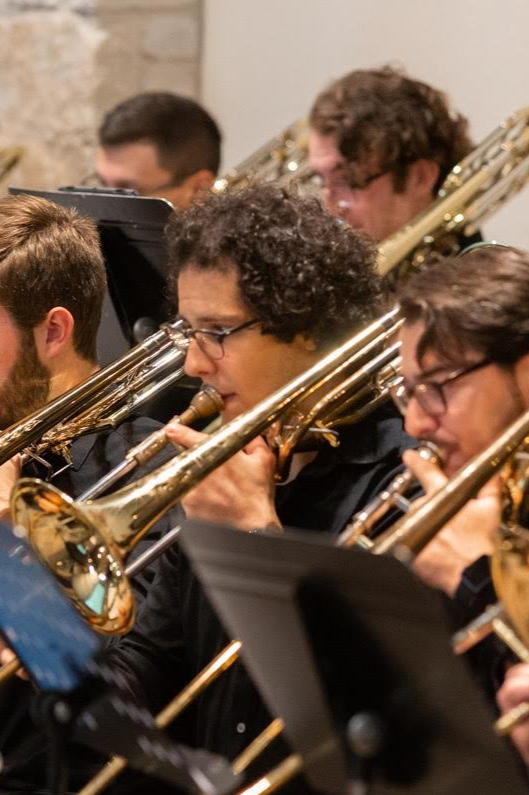
Teaching Philosophy
The best education involves true collaboration, where all parties meet in the middle regardless of skill disparity, and grow together. This style of teaching allows one to approach each student as they are, avoiding a cookie-cutter method of pedagogy. I think this is paramount as an educator, and encourages everyone involved to see the other as human, not infallible.
My goal is to build a web of tools and exercises for my students, because I find that more often than not the quickest and most effective way to learn is to apply things from outside their immediate technique at hand. For example, the brass player uses their air and lips to create sound in the exact same way a singer creates sound with their vocal cords; so in that vein, someone with a nagging air/chop issue might find enlightenment from a vocalist colleague or teacher. I notice that this keeps students and professionals from becoming monomaniacal, stuck in the specifics in what is often referred to as “paralysis by analysis.”
Specifically regarding the trombone, I engage my students as athletes. Athletes must stretch, warm-up, go to practice (rehearsal), and perform under the bright lights and high pressure. In my experience, this approach helps students realize the established science of how our bodies strengthen and respond to adversity, both mental and physical. It also helps with direct comparisons if a concept doesn’t click immediately; equating things like lip slurs, solos, excerpts, or etudes to things like stretches, light cardio, intense weight training, or diet has proven very successful for me and my students to succeed together with clarity.
No two humans or trombones are the same, and the teaching must reflect that. Some react better to criticism, some to positive reinforcement, and this is ever-changing. I ultimately aspire for the student to become a better citizen, artist, musician, and trombone player, in that order. Some lessons it is more important to offer counsel on life rather than advice on the horn. Other lessons, it is more important to get nit-picky on a certain passage to get the fire lit beneath a particular student. Every lesson is different, even with the same student week in and week out. I love that about music.
Lastly, while playing a musical instrument isn’t easy, it also doesn't have to be supremely difficult. As much as I push my students to strive for excellence, I encourage them to enjoy the process and see the forest for the trees. This pursuit is lifelong, and it also shapes the way we operate in our greater society. I want my students to leave me as active and participating community members, teachers, performers, and learners, no matter the age. I believe that music serves individuals as much as it does the world, and I preach that in every lesson and rehearsal.